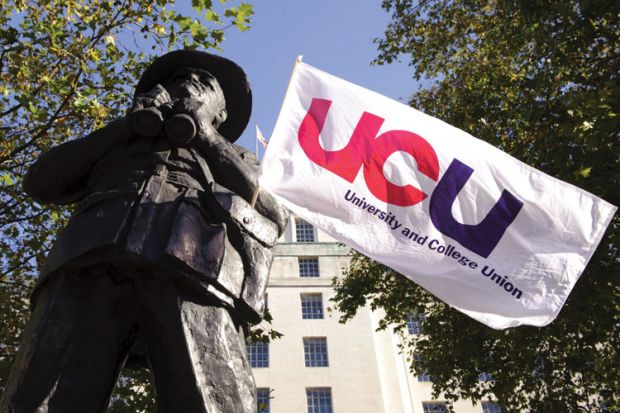University staff will receive a 1 per cent pay rise this year after the University and College Union chose not to oppose employers’ final offer.
With three other unions – Unite, Unison and GMB – concluding pay negotiations, universities are now in a position to implement the 1 per cent salary uplift for the 2015-16 academic year, it was announced on 20 October.
“The employers were pleased to be able to make a fair and substantial offer and one that exceeded the official cost of living indicators,” said Paul Curran, vice-chancellor of City University London and chair of the Universities and Colleges Employers Association (Ucea).
The only union still in dispute is the EIS-ULA, which represents about 1,200 members in Scottish universities – just 1 per cent of the sector’s unionised workforce, Ucea said.
In addition to the 1 per cent pay increase on all pay points, the offer will also include higher pay rises of up to 2.65 per cent for lower-paid staff.
That will ensure that all those on the 51-point national pay spine are paid at least the Living Wage of £7.85 an hour, employers say.
The average pay rises will amount to 2.5 per cent in light of annual increments, merit-based pay and other rises paid to many staff, Ucea says. The 1 per cent deal is above inflation, it adds.
However, it is significantly below average pay rises of more than 3 per cent awarded in the UK this year.
The end of this year’s pay negotiations follows a decision by UCU’s higher education committee (HEC) not to embark on a campaign of industrial action against the pay award, despite anger at the “disappointing” offer among many members.
In a consultative ballot of members in June, 53.5 per cent of voters indicated a wish to reject the offer – while 55.7 per cent said they would back action short of a strike.
However, only 47 per cent said they would support strike action.
Without a strong mandate for industrial action from the consultative ballot, a meeting of the HEC on 9 October heard that a “majority of branches did not feel their members would support taking sustained and escalating action for an improvement to the 2015 final offer of 1 per cent”.
Only 14 of the 91 branches represented in consultation meetings held earlier had supported a ballot on strike action in late 2015, the meeting heard.
The majority of branches felt that a strike ballot would not be well supported and may be lost, it also heard.
It was decided that the UCU would simply “note” the 2015 offer, rather than reject or accept it, and develop a strategy around pay negotiations in 2016, with a potential strike ballot and industrial action taking place in April or May if next year’s offer was deemed unacceptable.
The “longer timeline enables a sustained period to campaign and link action to leverage over the 2016 claim and negotiating round and the final offer”, according to a UCU newsletter published this month.
UCU head of bargaining, Michael MacNeil, said the feedback from well-attended regional meetings and submissions from local branches had indicated that “pay is a key issue and that UCU needs to actively build a campaign on pay”.
“The committee decided, however, that in regard to the 2015-16 final offer a conclusion had been reached, and that the union would seek to submit an early pay claim for 2016 and move to ballot members if the employers’ response was unacceptable.”
Register to continue
Why register?
- Registration is free and only takes a moment
- Once registered, you can read 3 articles a month
- Sign up for our newsletter
Subscribe
Or subscribe for unlimited access to:
- Unlimited access to news, views, insights & reviews
- Digital editions
- Digital access to THE’s university and college rankings analysis
Already registered or a current subscriber?




